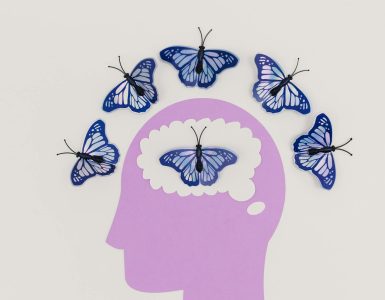Ever wondered why you make the choices you do? Why you react the way you do in certain situations? Psychology isn’t just about diagnosing disorders; it’s about understanding the incredible, often illogical, tapestry of human behavior. It’s about uncovering the hidden patterns in how we think, feel, and act – the secret springs that drive our actions. And the best part? Many of these patterns are surprisingly predictable.
The Power of Priming: Your Unconscious on Autopilot
Imagine walking into a bakery, the aroma of freshly baked bread filling the air. Suddenly, you find yourself craving a loaf, even if you weren’t hungry before. That’s priming in action. It’s the unconscious activation of certain associations, subtly influencing your thoughts and behavior. Experiments have shown that exposure to words related to aging can actually slow down a person’s walking speed! Similarly, subtly exposing people to images of money can make them less likely to help others in need. Your brain is constantly processing information below the surface, shaping your choices without you even realizing it.
Der Framing-Effekt: Wie Worte die Realität formen
A classic example: Would you rather buy ground beef that’s 90% lean or 10% fat? Both are the same, but the framing – emphasizing the positive (lean) versus the negative (fat) – profoundly impacts our decisions. This applies to everything from marketing campaigns (“limited-time offer!”) to political messaging. The way information is presented, even subtly, can drastically alter our perception of reality and our subsequent actions.
Kognitive Verzerrungen: Die mentalen Abkürzungen, die uns in die Irre führen
Our brains are amazing, but they’re also lazy. To conserve mental energy, we rely on cognitive shortcuts called biases. Confirmation bias, for example, is our tendency to seek out information confirming our pre-existing beliefs and ignore contradictory evidence. This explains why people can hold onto strongly held beliefs even when presented with overwhelming evidence to the contrary. Think of political debates – often, people are not swayed by facts, but rather by their existing framework.
Another example is the availability heuristic: we overestimate the likelihood of events that are easily recalled, often due to their vividness or recent occurrence. After watching a scary movie, you might overestimate the chances of encountering a burglar, even though statistically it’s unlikely. These biases, while often helpful in navigating daily life, can lead to poor decisions if we’re not aware of their influence. Warum prokrastinieren Menschen?
Der Bystander-Effekt: Die Streuung der Verantwortung
The infamous Kitty Genovese case highlighted a disturbing phenomenon: the bystander effect. When multiple people witness an emergency, each individual is less likely to intervene because the responsibility is diffused among the group. Everyone assumes someone else will act, and nobody does. Experiments have consistently demonstrated this effect, showing that the more people present, the less likely any single person is to help. Knowing about this effect is crucial – it highlights the importance of taking personal responsibility when witnessing an emergency, even if others are around.
Die Macht des sozialen Einflusses: Konformität und Gehorsam
Solomon Asch’s conformity experiments showed how easily people conform to group pressure, even when they know the group is wrong. Participants were asked to judge the length of lines, and confederates deliberately gave incorrect answers. A surprising number of participants conformed to the group’s wrong answer, even when the correct answer was obvious. This demonstrates the powerful influence of social norms and the desire to fit in.
Milgram’s obedience experiments were even more chilling. Participants were instructed to administer increasingly painful electric shocks to another person (actually a confederate) when they made a mistake. A staggering number of participants obeyed the authority figure, even when they believed they were inflicting significant pain. This shows the terrifying power of authority and the importance of questioning commands, especially when they conflict with our conscience.
The Halo Effect: One Good Thing Colors Everything
Have you ever met someone attractive and instantly assumed they were also intelligent and kind? That’s the halo effect. A positive impression in one area (like attractiveness) spills over and influences our judgments in other unrelated areas. It’s a cognitive bias that can lead to unfair or inaccurate assessments of others. This bias can influence everything from hiring decisions to relationships, demonstrating how our first impressions can be surprisingly powerful and often misleading.
The Dunning-Kruger Effect: Incompetence Masks Itself as Confidence
This is the ironic phenomenon where unskilled individuals overestimate their abilities, while highly skilled individuals underestimate their own. The less you know, the more confident you may be; the more you know, the more aware you become of the vastness of what you *don’t* know. This effect highlights the importance of self-reflection and seeking feedback to improve our self-awareness.
Conclusion: Unmasking the Unexpected
Understanding these hidden patterns in human behavior doesn’t make us cynical; it empowers us. By understanding the subtle forces shaping our thoughts and actions, we can make more conscious choices, navigate social situations more effectively, and become more self-aware. It’s a journey of self-discovery – uncovering the unexpected springs that drive the fascinating, often unpredictable, machine that is you.

























Kommentar hinzufügen